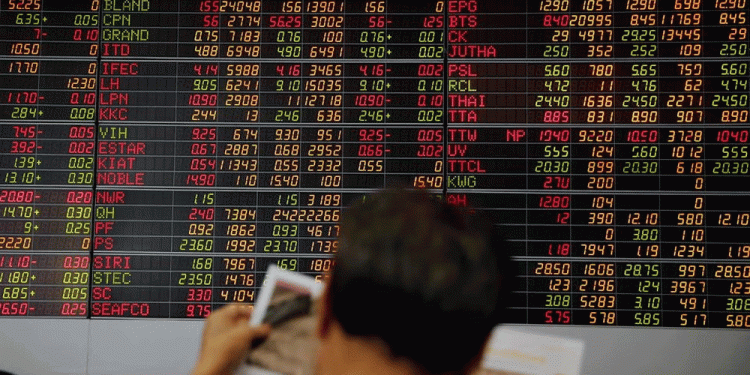NEW YORK: The US dollar weakened against the euro on Tuesday as the Chinese yuan showed more stability, after the greenback reached an almost five-week high against the single currency on Monday.
The yuan has strengthened to 6.8284 from 6.9122 on Friday, when China’s central bank raised the cost of shorting the currency. That has helped to stem an approximately 7 percent decline since mid-June.
Bloomberg News reported on Tuesday that the People’s Bank of China is urging banks to prevent “herd behaviour” and momentum-chasing moves in a further bid to support the currency.
Hopes that the yuan may be stabilizing bolstered the euro, which has become more correlated with yuan/dollar moves as trade tensions escalate.
“Dollar/CNH is driving everything in G10, especially the euro,” said Mark McCormick, North American head of FX strategy at TD Securities in Toronto.
“What the market was trying to figure out was, is China intentionally trying to weaken their currency or is China just letting their currency weaken?” said McCormick. “I think now that we’re getting a little bit of certainty maybe it will reduce the volatility in dollar/CNH, which in turn creates that floor for the euro at a lower end of the band.”
Positioning is also likely weighing on the greenback with speculators holding close to the most bullish bets on the dollar since January 2017, according to Commodity Futures Trading Commission data.
“We’re at a situation now where market positioning is beginning to become a little bit more of a headwind for the US dollar,” said Omer Esiner, chief market analyst at Commonwealth Foreign Exchange in Washington.
The dollar index was down 0.10 percent at 95.264. It had risen to 95.652 on July 19, its highest since July 2017. It has struggled to break much above the 95.5 level, which it has tested multiple times in the past two months.
The euro gained 0.24 percent against the greenback to $1.1581. It has some technical support at around $1.15.
The main US economic focus this week will be Friday’s consumer price inflation report for July, which is expected to show a 0.2 percent increase in core inflation in the month, according to a Reuters poll.
Source: Brecorder

























